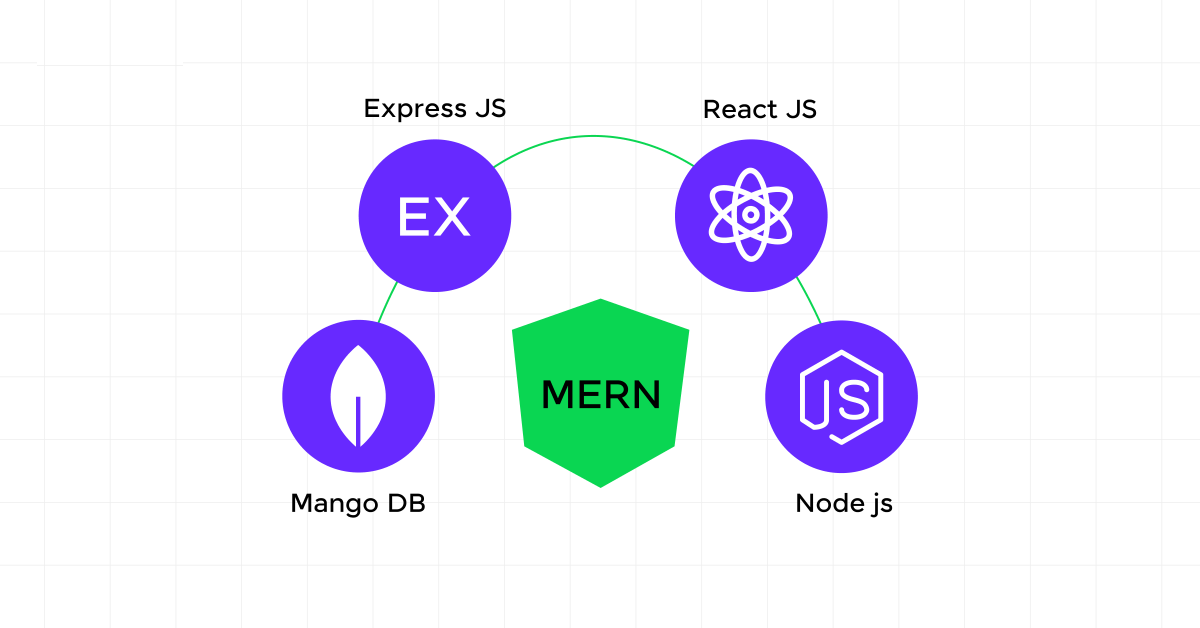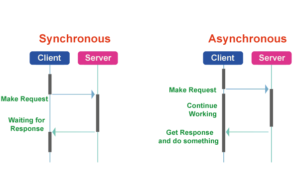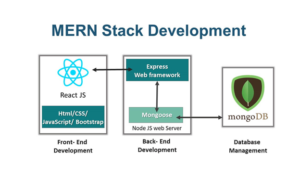
Introduction
Asynchronous APIs play a vital role in the MERN stack, which comprises MongoDB, Express.js, React.js, and Node.js. They enable non-blocking operations that enhance application performance and user experience. By allowing multiple tasks to be executed concurrently, asynchronous APIs ensure that web applications remain responsive and efficient, even under heavy user loads. This guide explores the significance of asynchronous APIs in building modern, dynamic web applications using the MERN stack. Aspiring MERN professionals can join the MERN Full Stack Developer Course for the best guidance.
What Is The MERN Stack?
The MERN stack is a popular set of technologies used for building full-stack web applications. It consists of four main components:
- MongoDB: A NoSQL database that stores data in a flexible, JSON-like format, ideal for handling large amounts of unstructured data.
- Express js: A web application framework for Node.js that simplifies building server-side applications by providing features for routing, middleware, and handling requests.
- React js: A JavaScript library developed by Facebook for building user interfaces, especially for single-page applications. It allows developers to create reusable components, making front-end development efficient and dynamic.
- Node js: A JavaScript runtime that executes JavaScript code outside of a browser, mainly on the server side, enabling full-stack JavaScript development.
The MERN stack is favoured by developers because it allows the use of a single language, JavaScript, across the entire application—from the client (React) to the server (Node.js and Express) and the database (MongoDB). This makes it efficient, flexible, and ideal for building modern, dynamic web applications, such as e-commerce platforms, social media apps, and more.
The stack is open-source, widely supported by the developer community, and offers scalability for both small and large applications.
Asynchronous API In MERN Stack
Asynchronous APIs in the MERN stack enable non-blocking operations, allowing the application to handle multiple tasks concurrently without waiting for previous ones to complete. This is crucial for building efficient, fast, and responsive applications, especially when dealing with data retrieval, file uploads, or external APIs. Many Mern Stack Interview Questions include questions on Asynchronous APIs, thereby, making them an integral part of the MERN Stack.
In the MERN stack:
- Node js: The core of handling asynchronous tasks, as it operates on an event-driven, non-blocking I/O model. It uses callbacks, promises, or async/await to manage asynchronous operations. For example, an API call that retrieves data from MongoDB doesn’t block other processes while waiting for the data.
- Express js: It handles HTTP requests and responses in a non-blocking way. With middleware, Express allows APIs to execute tasks like user authentication or data validation asynchronously.
- MongoDB: MongoDB queries are often asynchronous. Using native MongoDB drivers or Mongoose, developers interact with the database asynchronously, allowing the application to continue running while waiting for data.
- React js: On the front end, asynchronous API calls (using fetch or axios) allow the application to request data from the backend without blocking the user interface, providing a smooth user experience.
Thus, asynchronous APIs in the MERN stack enhance performance by allowing multiple tasks to be processed concurrently, improving the app’s responsiveness and scalability.
Asynchronous API Features

Asynchronous APIs offer several key features:
- Non-Blocking Operations: They allow multiple tasks to run concurrently without waiting for one task to complete, improving performance.
- Event-Driven Architecture: APIs respond to events rather than being executed sequentially, which enhances scalability.
- Improved User Experience: By enabling background data fetching, they keep user interfaces responsive and interactive. Check the MERN Full Stack Developer Course to learn more about the features.
- Error Handling: Promises and async/await syntax provide cleaner error management, allowing developers to handle errors more effectively.
- Scalability: Asynchronous APIs can manage high volumes of requests efficiently, making them suitable for applications with significant user traffic.
Why Do We Need Asynchronous API In MERN Stack?
Asynchronous APIs are crucial in the MERN stack for several reasons:
- Enhanced Performance: Asynchronous operations prevent the application from blocking while waiting for responses from databases or external services. This allows the server to handle multiple requests concurrently, improving overall performance.
- Responsive User Interfaces: In a MERN application, using React.js on the front end allows for asynchronous API calls. This means users can interact with the application without experiencing delays, as data is fetched in the background. For instance, loading a new set of data while users continue to browse enhances user experience significantly.
- Efficient Resource Management: Asynchronous APIs utilize system resources more effectively. Instead of wasting time waiting for tasks to complete, the server can handle other requests, leading to better resource allocation and utilization.
- Scalability: Asynchronous APIs can manage high traffic volumes efficiently. This is essential for applications that anticipate a growing user base, as they can serve many users simultaneously without performance degradation.
- Error Handling: Promises and async/await syntax make it easier to manage errors in asynchronous operations, allowing developers to implement robust error-handling strategies.

Thus, asynchronous APIs in the MERN stack are vital for building high-performance, scalable applications that provide a seamless user experience. One can check the Mern Stack Interview Questions to learn more about asynchronous APIs in the MERN stack.
Conclusion
In summary, asynchronous APIs are essential in the MERN stack for enhancing application performance, ensuring responsive user interfaces, and enabling efficient resource management. Their ability to handle multiple tasks concurrently and manage errors effectively contributes to the scalability and overall success of modern web applications, making them indispensable for developers.







